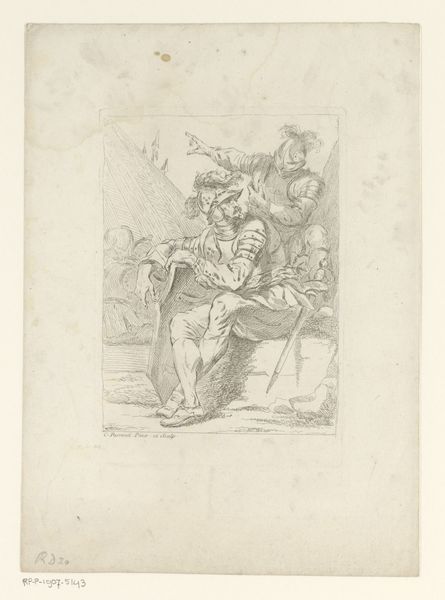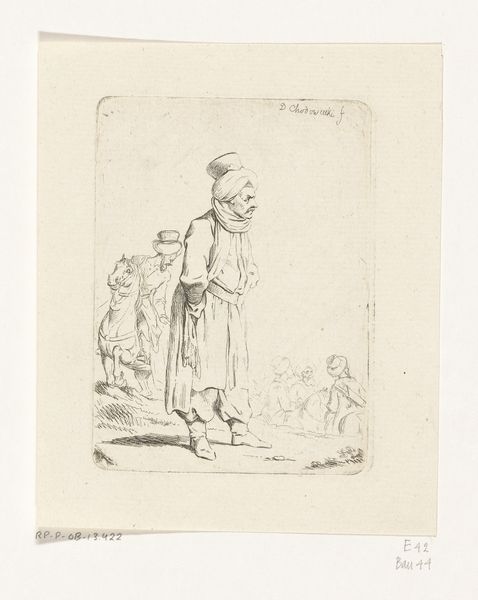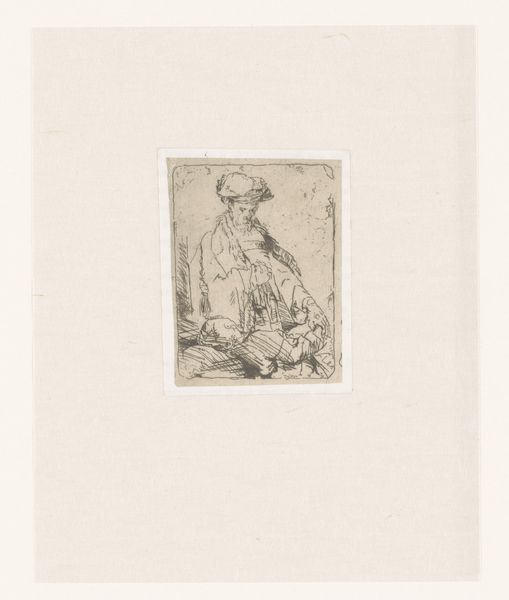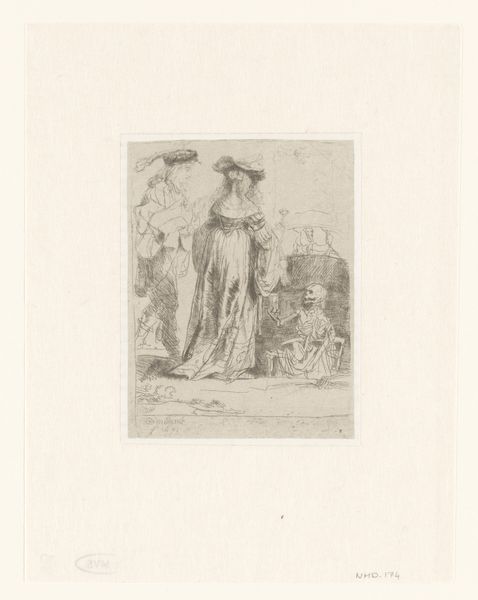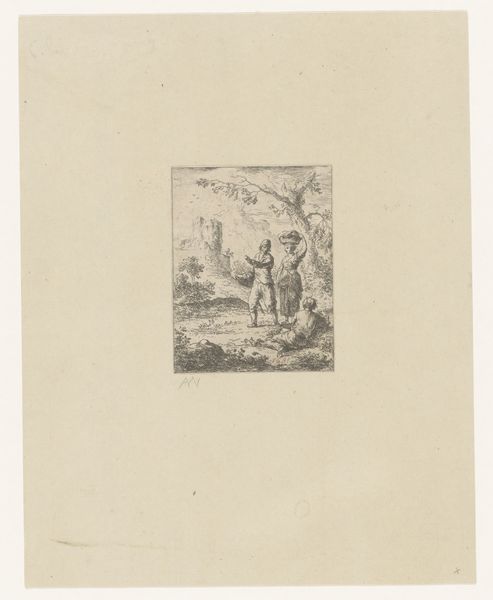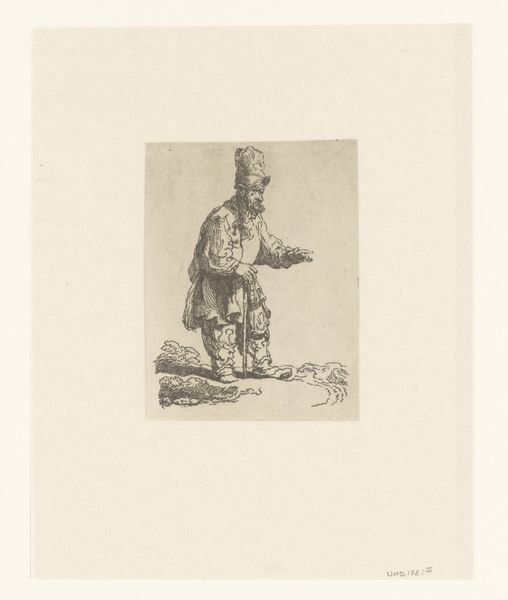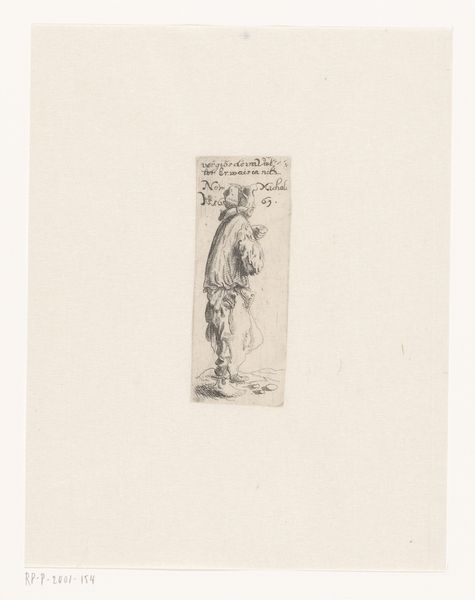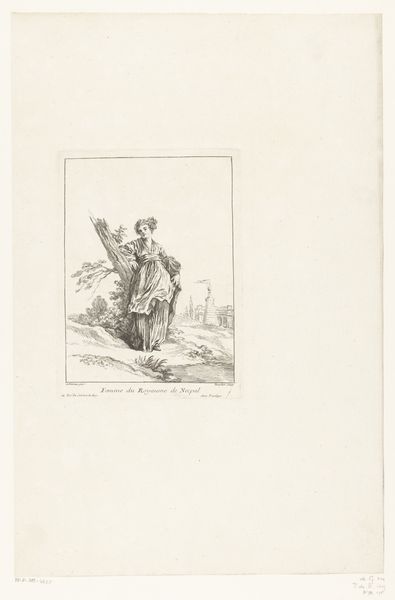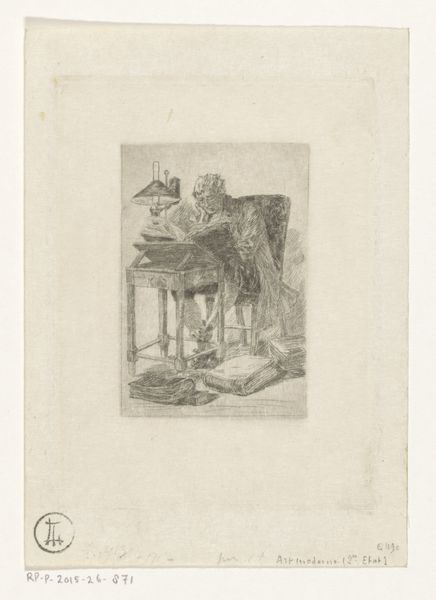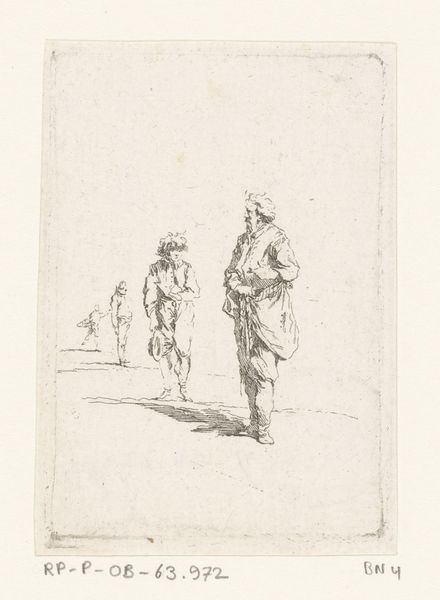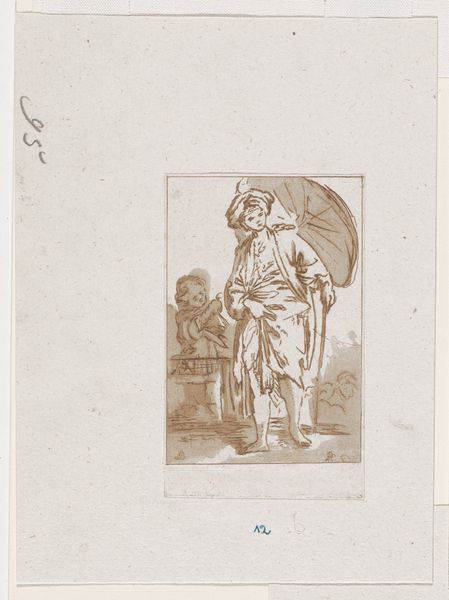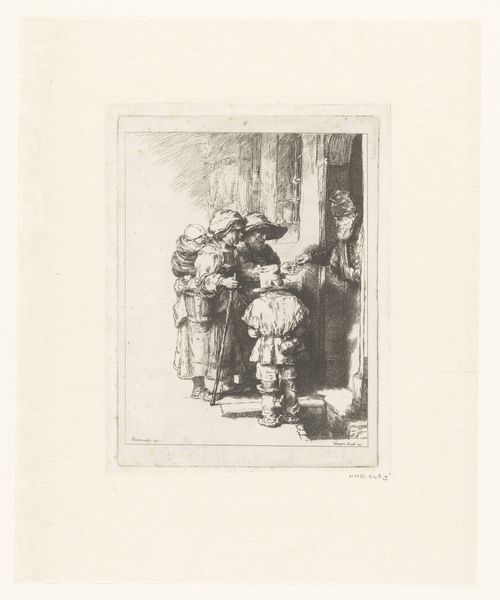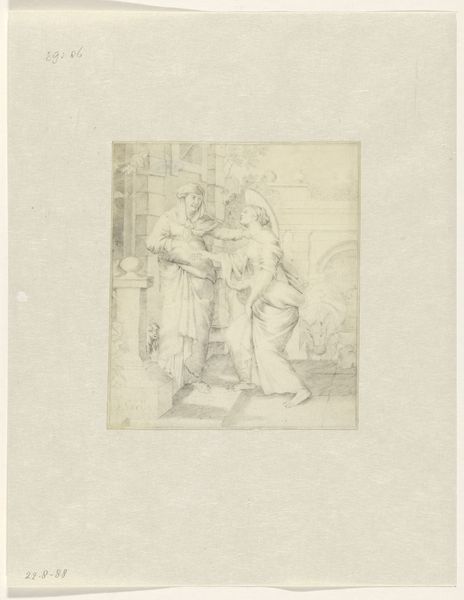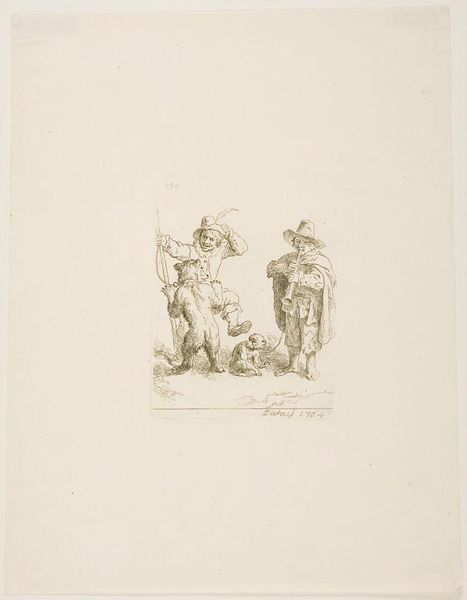
Dimensions: height 116 mm, width 86 mm
Copyright: Rijks Museum: Open Domain
David Deuchar made this print, *Peasant family on the tramp,* in the 18th century. It shows a family walking on the road, carrying all their worldly possessions, a common sight in a period of major social upheaval. Deuchar made this print in Britain, a country whose economic structures were being reshaped by the industrial revolution. It presents the family as figures of pathos. Is it an act of social conscience, showing the effects of poverty? Or is it an act of self-congratulation, reassuring the viewer of their relative social position? Perhaps it is both. To explore these questions, one could look to other visual representations of poverty in eighteenth-century Britain. It is interesting to compare this presentation of the rural poor with their depiction in Hogarth’s engravings of London. In the end, the meaning of an artwork always depends on the social and institutional conditions in which it is made and received.
Comments
No comments
Be the first to comment and join the conversation on the ultimate creative platform.
